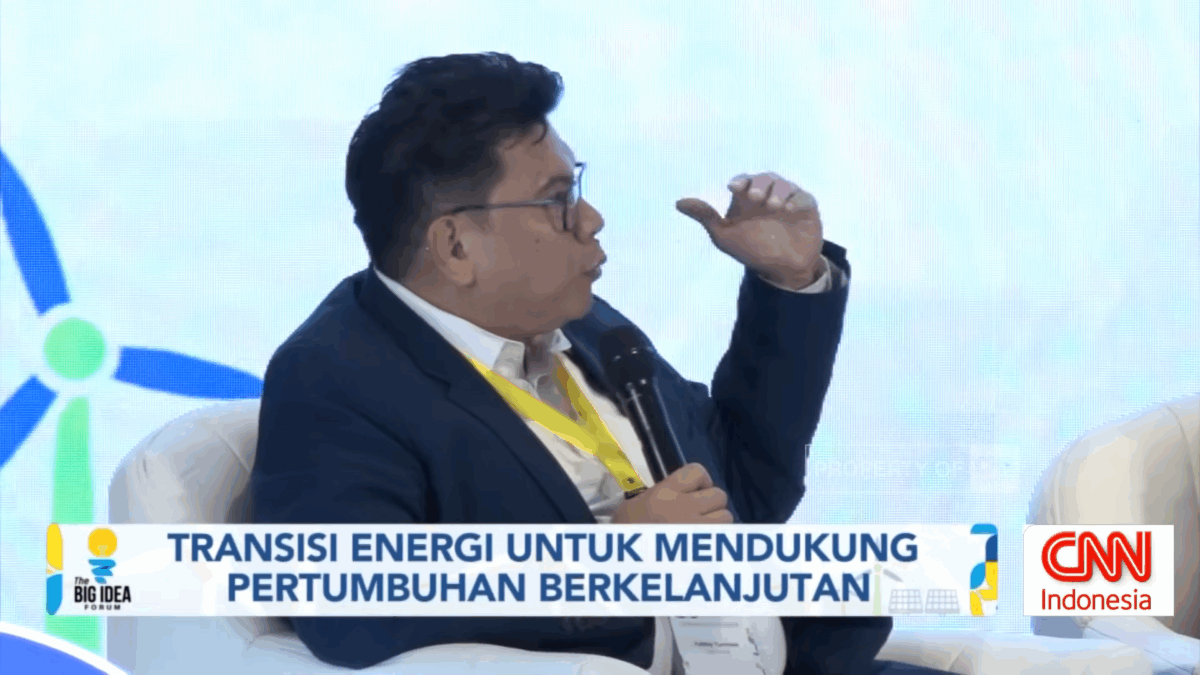Jakarta, October 13, 2025 – The energy transition is a necessity if Indonesia is to achieve sustainable growth. This was stated by Fabby Tumiwa, Chief Executive Officer (CEO) of the Institute for Essential Services Reform (IESR), in the program The Big Idea Forum and Indonesia Energy Transition Dialogue (IETD) 2025, supported by IESR, which aired on Wednesday (October 8).
“The world is currently in crisis mode. To avoid a crisis, a transformation of the energy system is needed. This crisis is caused by our excessive consumption of fossil fuels, and today 75% of global emissions come from fossil fuels. Based on science, we also don’t have much time to prevent global temperature rise below 2 degrees Celsius. If it rises above that, the impacts will be permanent (irreversible effects of climate change). Therefore, accelerating the energy transition is crucial to prevent the climate crisis from worsening,” Fabby emphasized.
Furthermore, Fabby explained that Indonesia’s carbon budget currently only stands at around 250 million tons, while annual carbon emissions exceed 50 million tons. This means that the time to make changes is increasingly limited. Acceleration and scale are needed to implement the energy transition. However, considering developments so far, the clean energy target still feels unrealistic because the benchmark is based on past performance. Indonesia is now challenged to move beyond business as usual and move faster.
“For example, if we want to align with the target of keeping global temperatures below 1.5–2 degrees Celsius, Indonesia’s renewable energy mix should reach 40% by 2030. However, based on Government Regulation No. 40 of 2025 concerning the National Energy Policy, Indonesia’s renewable energy target is only set at 23%. This gap indicates the need for greater efforts to accelerate the energy transition,” Fabby said.
Furthermore, Fabby highlighted a classic problem with renewable energy projects in Indonesia: bankability. Many projects are deemed unfit for financing by banks due to their high risk. Furthermore, renewable energy financing costs in Indonesia remain higher than in other countries due to the perception of high investment risk and policies that are not yet fully supportive.
“In fact, global funding for renewable energy is enormous. In the last five years, the value has reached around USD 5 trillion, with more than 60% flowing into the green energy sector. This means that money is not an issue. The main challenge is how to make renewable energy projects in Indonesia attractive to investors, by providing regulatory certainty and reasonable business returns,” explained Fabby.

